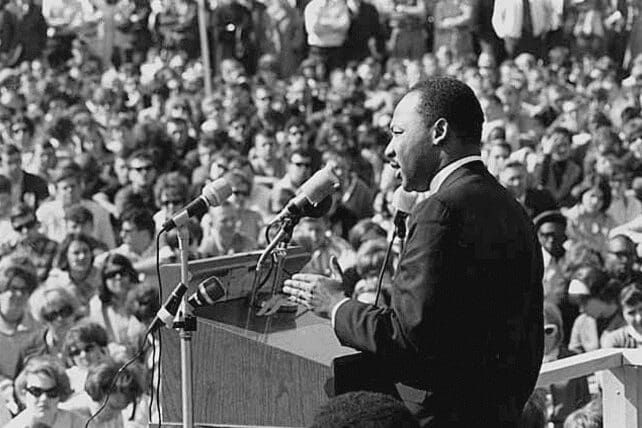On Monday (January 17), America commemorates the birthday of legendary civil rights figure Martin Luther King, Jr. The federal holiday, which was signed into law by President Ronald Reagan in 1983 and first observed three years later, is meant to be a celebration of the pivotal role King played in dismantling American segregation through nonviolent activism.
In the half century since King’s assassination in 1968, the Baptist minister turned activist and Noble Peace Prize winner has become almost universally beloved among Americans as an icon of racial justice and peace. However, disagreement about how, and by whom, his name and legacy should be leveraged to further the cause of justice in our own time has become a contentious debate.
In recent years, evangelicals have continued to be divided when it comes to race. From disagreements about Critical Race Theory to the issues of voting rights and equitable policing, the various groups within American Christianity often have clashing visions for a nation of people who will be “judged not by the color of their skin but by the content of their character.”
Following the murders of George Floyd, Ahmaud Arbery, and others in 2020, a wave of civil unrest broke out around the country. Amid the demonstrations, which often turned violent, the values of racial justice and “law and order” were regularly pitted against each other as though mutually exclusive.
During this time, Martin Luther King Jr.’s 1967 “The Other America” speech became as relevant as the day it was given.
“Let me say as I’ve always said, and I will always continue to say, that riots are socially destructive and self-defeating,” King said in 1967. “But in the final analysis, a riot is the language of the unheard. And what is it that America has failed to hear? It has failed to hear that the plight of the Negro poor has worsened over the last few years. It has failed to hear that the promises of freedom and justice have not been met…And so in a real sense our nation’s summers of riots are caused by our nation’s winters of delay.”
For some evangelicals, King’s words about riots being socially destructive and self-defeating were the main takeaway, as they rounding and vocally condemned protests around the country. But for others, they questioned what it is that America had been failing to hear.
It is this key difference in emphases that has been at the heart of many of the fissures regarding race among evangelicals, whether on the streets, in the classroom, or among the pews.
Such a fissure was on display at the annual meeting of the Southern Baptist Convention (SBC) in June of 2021, which centered on a conflict about Critical Race Theory (CRT) at least two years in the making.
In 2019, the denomination adopted a resolution that became controversial for referring to CRT and Intersectionality as “analytical tools [that] can aid in evaluating a variety of human experiences,” even though they “alone are insufficient to diagnose and redress the root causes of the social ills that they identify, which result from sin.”

